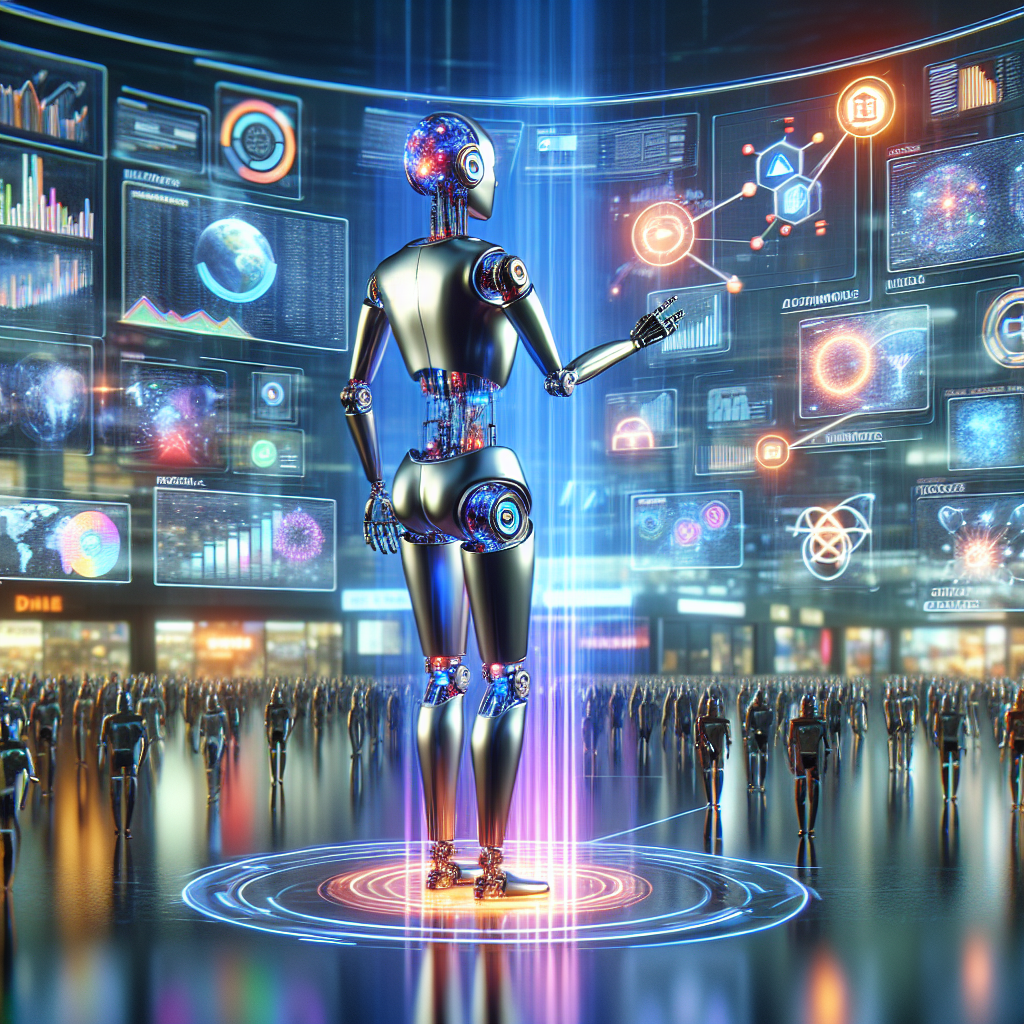In recent years, marketing has undergone a dramatic transformation thanks to advancements in artificial intelligence (AI) and automation. These technologies have revolutionized the way businesses reach and engage with their target audience, allowing for more personalized and data-driven marketing campaigns. As we look towards the future, it’s clear that AI-powered automation will continue to play a crucial role in shaping the marketing landscape. In this article, we will explore the impact of AI on marketing and how businesses can leverage these technologies to stay ahead of the curve.
AI-Powered Automation in Marketing
AI-powered automation refers to the use of artificial intelligence and machine learning algorithms to automate and optimize marketing processes. This includes tasks such as data analysis, customer segmentation, content creation, and campaign optimization. By harnessing the power of AI, marketers can gain valuable insights into consumer behavior and preferences, allowing them to create more targeted and effective marketing campaigns.
One of the key benefits of AI-powered automation is its ability to handle large volumes of data in real-time. This allows marketers to track and analyze customer interactions across multiple channels, such as social media, email, and websites, to gain a comprehensive view of their target audience. With this data, businesses can create personalized marketing messages that resonate with consumers on a more individual level.
AI-powered automation also enables marketers to automate repetitive tasks, such as scheduling social media posts, sending personalized emails, and analyzing campaign performance. This not only saves time and resources but also allows marketers to focus on more strategic initiatives, such as developing creative content and building long-term relationships with customers.
The Future of Marketing with AI-Powered Automation
As AI technologies continue to evolve, the future of marketing will be increasingly driven by AI-powered automation. Here are some key trends that we can expect to see in the coming years:
1. Hyper-personalization: With AI, marketers can create highly personalized marketing campaigns that cater to the individual needs and preferences of each customer. By leveraging data and machine learning algorithms, businesses can deliver targeted messages at the right time and through the right channel, leading to higher engagement and conversion rates.
2. Predictive analytics: AI-powered automation can help marketers predict customer behavior and preferences based on historical data and real-time interactions. By analyzing patterns and trends, businesses can anticipate customer needs and proactively address them, leading to more effective marketing strategies.
3. Chatbots and virtual assistants: Chatbots and virtual assistants powered by AI are becoming increasingly popular in marketing, providing customers with instant support and personalized recommendations. These AI-powered tools can help businesses streamline customer service, improve response times, and enhance the overall customer experience.
4. Voice search optimization: As more consumers use voice-activated devices, such as smart speakers and virtual assistants, marketers will need to optimize their content for voice search. AI-powered automation can help businesses understand how people search using their voice and create content that is optimized for this emerging trend.
5. Automated content creation: AI-powered tools can help marketers create personalized and engaging content at scale. From writing product descriptions to generating social media posts, AI can automate content creation processes, allowing businesses to produce high-quality content more efficiently.
FAQs
Q: How can businesses get started with AI-powered automation in marketing?
A: Businesses can start by identifying their marketing goals and objectives, then exploring AI-powered tools and platforms that can help them achieve these goals. It’s important to invest in training and resources to ensure that employees are equipped with the skills and knowledge needed to leverage AI effectively.
Q: What are some common challenges businesses may face when implementing AI-powered automation in marketing?
A: Some common challenges include data privacy concerns, lack of integration with existing systems, and resistance to change from employees. It’s important for businesses to address these challenges proactively and work towards creating a culture that embraces AI technologies.
Q: How can AI-powered automation help businesses improve their ROI?
A: By automating repetitive tasks, analyzing data more efficiently, and delivering personalized marketing messages, AI-powered automation can help businesses improve their ROI by reducing costs, increasing efficiency, and driving higher conversion rates.
Q: What are some ethical considerations businesses should keep in mind when using AI in marketing?
A: Businesses should be transparent about how they use AI technologies in marketing and ensure that they are compliant with data privacy regulations. It’s important to prioritize customer trust and ensure that AI-powered automation is used responsibly and ethically.
In conclusion, AI-powered automation is set to revolutionize the future of marketing, enabling businesses to create more personalized and data-driven campaigns that resonate with consumers. By embracing AI technologies and staying ahead of the curve, businesses can gain a competitive edge in an increasingly digital world. As we look towards the future, it’s clear that AI-powered automation will continue to play a crucial role in shaping the marketing landscape, driving innovation, and delivering impactful results.

